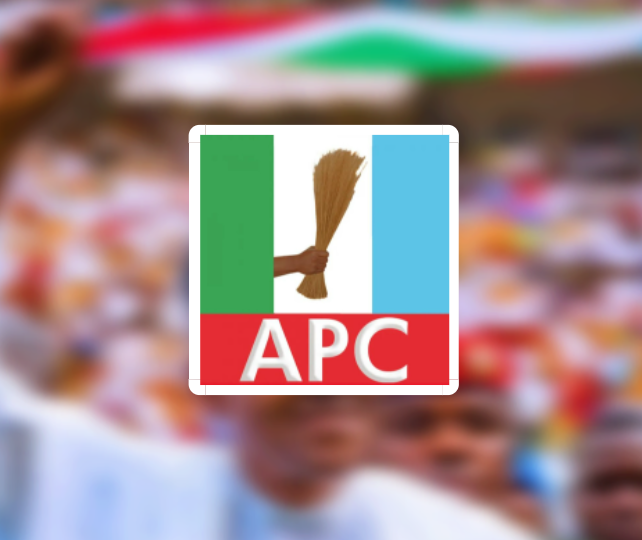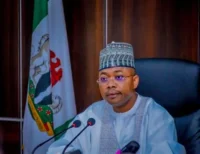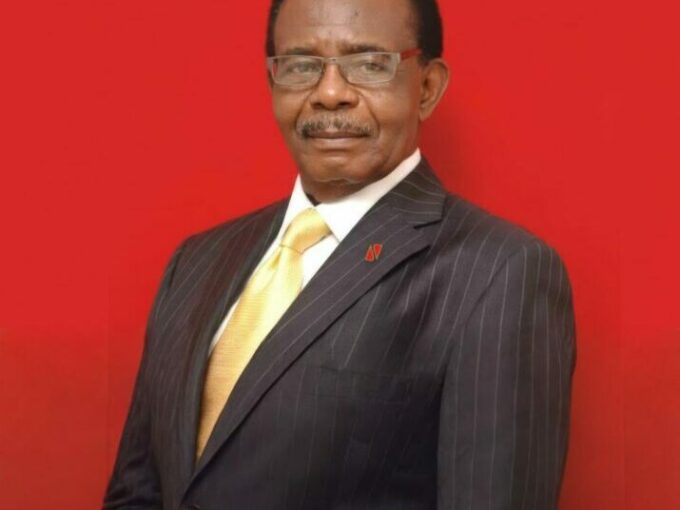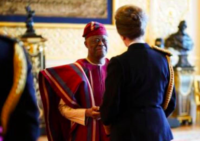Strong nations are built by businesses that refuse to stay small, and by entrepreneurs who dream beyond themselves, argues LINUS OKORIE
Nations do not rise on political speeches or endless policy documents. They rise on the back of businesses that create value, provide jobs, and generate the wealth that keeps societies alive. The true builders of nations are not just our political leaders; they are the entrepreneurs who painstakingly turn their ideas into enterprises, and the small business owners who keep their doors open against impossible odds. If you want to know the health of a nation, then look at its businesses.
The global economy is not built by Fortune 500 companies alone. It rests heavily on grassroots businesses, which includes street vendors, small-scale farmers, local artisans, family-owned shops, and emerging startups. These are the businesses that employ the majority of people, especially in developing countries. In Nigeria, for instance, small and medium enterprises (SMEs) contribute nearly half of the GDP and account for more than 80% of employment. Strip them away, and the economy collapses. They are not “small” in importance; they are the backbone.
Grassroots businesses also embody resilience. They adapt quickly, respond to local needs, and often build deeper trust with communities. A woman selling food from a roadside stall may seem insignificant on a spreadsheet, but collectively, millions like her are feeding cities, supporting families, and keeping money circulating within the local economy.
Every industry giant began as a dream scribbled on paper, a garage operation, or a corner shop. Dangote Group began in Nigeria in 1977 as a small trading firm importing rice, sugar, and cement. Today, it is Africa’s largest conglomerate, employing tens of thousands and reshaping entire industries. Amazon started in Jeff Bezos’ garage in 1994 as an online bookstore. Today, it is one of the most influential companies in the world, defining how commerce works globally. Nollywood, once dismissed as low-budget film hustle, is now the second-largest film industry in the world, employing over a million people and shaping Nigeria’s global cultural image. These stories remind us that the difference between “small” and “conglomerate” is persistence, vision, and the ability to scale.
When a business grows, its impact multiplies far beyond its founders.
Jobs: A thriving business doesn’t just employ staff—it creates indirect jobs in logistics, supply chains, marketing, and more. A single factory can feed thousands of households.
Taxes: Businesses provide the revenue governments rely on to build roads, schools, and hospitals. Without a strong private sector, public infrastructure remains a pipe dream.
Innovation: Businesses push nations forward by solving problems creatively. From fintech companies tackling financial inclusion in Africa to renewable energy startups reducing reliance on fossil fuels, innovation often comes from entrepreneurs, not government committees.
In short: every naira, dollar, or cedi invested in a sustainable business is a seed planted for national progress. Nation-building through business is not the responsibility of entrepreneurs alone. The government must create enabling environments with fair regulation, stable policies, and access to financing. We need them to invest in infrastructure so businesses can operate without constant battles against poor power supply or bad roads. Lastly, businesses flourish when they cut bureaucratic bottlenecks that suffocate enterprise.
On the other hand, citizens must support local businesses instead of always preferring imported goods. We need them to hold businesses accountable to ethical standards without demonizing entrepreneurship. We also need them to celebrate business success stories rather than pulling them down with cynicism. When governments set the right conditions and citizens back their own, businesses thrive and nations benefit.
Certain entrepreneurs do more than run companies; they redefine how their countries are perceived. Strive Masiyiwa built Econet, a telecom giant under hostile conditions, opening the door for mobile communication across Africa. His story turned Zimbabwe into a case study in resilience. Innocent Chukwuma founded Innoson Motors, Nigeria’s first indigenous car manufacturer, challenging the dominance of imported vehicles and reshaping conversations about local production. Mo Ibrahim, a Sudanese business mogul pioneered mobile telephony across Africa and went on to influence governance through the Mo Ibrahim Foundation. These individuals prove that one business can alter how a nation is seen by the world, and how citizens see themselves.
Quick-profit schemes may enrich individuals for a moment, but they leave nations poorer. Legacy businesses, on the other hand, outlast founders and anchor economies. Japan’s rise after World War II is tied to companies like Toyota, Sony, and Panasonic. These are firms built for long-term value. In contrast, nations where businesses collapse after one generation lose both economic stability and institutional memory. Legacy-building means prioritizing governance, succession planning, and ethical practices. It means resisting shortcuts, even when they promise fast wealth. For nations to transform, businesses must be built to endure.
Look at countries with thriving private sectors, and you will see nations that prosper. Germany’s “Mittelstand”, its powerful small and medium-sized enterprises form the bedrock of Europe’s strongest economy. South Korea’s rise from poverty to global powerhouse is tied to conglomerates like Samsung and Hyundai. Now compare with nations where private enterprise is weak, either crushed by corruption or smothered by bad policy. These countries often face high unemployment, capital flight, and dependence on foreign aid. The lesson is self-explanatory: a nation is only as strong as its businesses.
Governments can either enable enterprise or choke it. In Singapore, pro-business policies, efficient bureaucracy, and investment in infrastructure turned a resource-poor island into one of the world’s richest nations. In Venezuela, heavy-handed state control and hostility to private enterprise collapsed industries, driving millions into poverty despite vast oil reserves. The message is that when governments treat businesses as partners, nations grow. When they treat them as enemies or cash cows, nations decline.
Business failure is not just a private tragedy; it is a public one. When a company closes:
· Workers lose jobs, increasing unemployment and social instability.
· Governments lose tax revenue, weakening public services.
· Communities lose innovation, support, and identity.
This is why business health should matter to every citizen, not just entrepreneurs. A failed business is a failed opportunity for national progress. Nations cannot leapfrog into prosperity without businesses that create, innovate, and endure. Political leadership sets the tone, but businesses set the pace. Entrepreneurs hold the keys to economic freedom, and their work must be supported, celebrated, and protected.
Those who aim to build sustainable businesses must invest heavily in leadership capital for themselves and that of their teams. A business cannot outgrow the vision, competence, and discipline of the people who run it. When leaders commit to continuous growth, train their teams, and embed strong values into their culture, they create organizations that last. This investment in people pays the highest dividends: sharper decision-making, greater resilience in crises, and the ability to innovate at scale. Businesses that prioritize leadership development don’t just survive market shifts—they transform, and in doing so, they transform their nations.
Building businesses that transform nations requires vision for legacy, trust as a foundation, governments that enable rather than stifle, and citizens who believe in their own. The future belongs to countries where starting and sustaining a business is not a gamble but a pathway to nation-building. At the end of the day, strong nations are not built by chance. They are built by businesses that refuse to stay small, by entrepreneurs who dream beyond themselves, and by societies that understand that every thriving business is a national treasure.
Okorie MFR is a leadership development expert spanning 30 years in the research, teaching and coaching of leadership in Africa and across the world. He is the CEO of the GOTNI Leadership Centre.


















Leave a comment